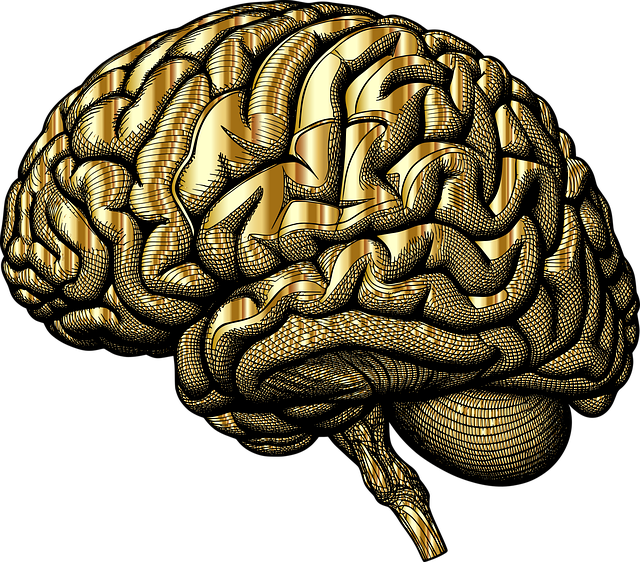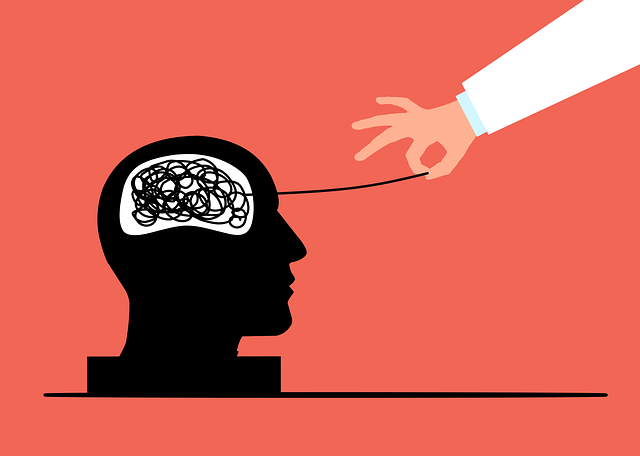In today's stressful environment, Crisis Intervention Teams (CITs) provide crucial support during mental health crises, comprising professionals like therapists and social workers. Integrated into communities like Aurora, where independent medical evaluations for therapy are accessible, CITs enhance response times through immediate assessments, de-escalation techniques, and proactive strategies like stress management workshops. Aurora Independent Medical Evaluations (AIMEs) offer detailed mental health assessments, enabling tailored coaching and bridging the gap between crisis intervention and evidence-based therapies. Training programs for CITs in Aurora emphasize empathy, effective communication, CBT, and mindfulness practices, empowering professionals to manage acute stress, navigate complex scenarios with compassion, and promote long-term mental health resilience. Regular training sessions and evaluations, guided by AIMEs, ensure CIT programs remain effective in providing timely, compassionate, and professional care during mental health crises.
Crisis Intervention Team (CIT) training programs are transforming mental health support, providing vital resources for communities. This article delves into the multifaceted aspects of CITs, exploring their understanding and importance in addressing diverse crises. We examine the role of Aurora Independent Medical Evaluations in enhancing training effectiveness and how therapy techniques equip team members to handle various situations. Additionally, we discuss practical implementation strategies and the significance of continuous education and evaluation for long-term success.
- Understanding Crisis Intervention Teams: A Vital Resource for Mental Health Support
- The Role of Aurora Independent Medical Evaluations in Training Effectiveness
- Therapy Techniques: Equipping Team Members to Handle Diverse Crises
- Practical Implementation: Building a Strong Crisis Response Network
- Continuous Education and Evaluation: Ensuring Long-Term Success of CIT Programs
Understanding Crisis Intervention Teams: A Vital Resource for Mental Health Support

In today’s fast-paced world, where stress and mental health challenges are prevalent, Crisis Intervention Teams (CITs) emerge as a vital resource for providing immediate and effective support. These teams, often comprising professionals from various backgrounds, including therapists, social workers, and law enforcement officers, are specifically trained to handle crisis situations. Their role is to offer immediate assessment, guidance, and de-escalation techniques to individuals experiencing mental health crises, such as severe anxiety, depression, or psychotic episodes. By integrating CITs into communities, especially in areas like Aurora where independent medical evaluations for therapy are accessible, we can ensure faster response times and more effective interventions.
Crisis Intervention Guidance is not merely about responding to acute incidents; it involves proactive strategies for stress management workshops organization and mental wellness coaching programs development. Training these teams equips them with the skills to recognize early signs of distress, provide crisis de-escalation techniques, and connect individuals with appropriate long-term therapy options. This holistic approach to mental health support not only benefits the affected individual but also contributes to building a resilient community where folks feel empowered to navigate life’s challenges more effectively.
The Role of Aurora Independent Medical Evaluations in Training Effectiveness

In the realm of crisis intervention team training, Aurora Independent Medical Evaluations (AIMEs) play a pivotal role in enhancing the overall effectiveness of programs. These evaluations provide a comprehensive assessment of an individual’s mental health and wellness, offering valuable insights that can tailor therapy and coaching strategies. By integrating AIMEs into training curricula, mental wellness coaching programs can ensure that participants receive individualized support, fostering more meaningful development and growth.
The incorporation of AIMEs also facilitates the connection between crisis intervention techniques and evidence-based therapies. This integration allows for a holistic approach to addressing anxiety relief and mindfulness meditation practices within the training framework. As a result, participants gain a deeper understanding of how to navigate challenging situations while promoting mental wellness, ultimately strengthening their ability to provide effective support during crises.
Therapy Techniques: Equipping Team Members to Handle Diverse Crises

In crisis intervention team training programs, a significant focus is placed on equipping members with a diverse therapy toolkit to handle various crises effectively. These programs delve into techniques that foster empathy and improve communication skills, ensuring team members can connect with individuals in distress on a deeper level. By incorporating methods from cognitive-behavioral therapy (CBT) and mindfulness practices, trainees learn to help clients manage acute stress and promote positive thinking. The integration of these evidence-based strategies empowers the teams to provide immediate support while also encouraging long-term mental health resilience.
Moreover, training often involves specialized modules on risk management planning for mental health professionals, enabling them to assess and mitigate potential hazards associated with crisis situations. Stress management workshops are also organized to teach team members techniques that help them stay calm under pressure, thereby enhancing their ability to offer clear guidance and support during crises. The combination of these initiatives ensures that the Aurora Independent Medical Evaluations Therapy teams are well-prepared to navigate complex scenarios with compassion and professionalism.
Practical Implementation: Building a Strong Crisis Response Network

Effective crisis intervention team training programs go beyond theoretical knowledge and emphasize practical implementation. This includes fostering a strong network of professionals who can rapidly respond to mental health crises, mirroring the services provided by Aurora Independent Medical Evaluations Therapy. The core of this network involves collaboration among various stakeholders such as healthcare providers, counselors, social workers, and law enforcement officers. By integrating these diverse experts, communities can offer comprehensive support tailored to individual needs.
The success of crisis response relies on continuous development and resilience-building strategies within these teams. Mental wellness coaching programs play a crucial role in enhancing emotional well-being promotion techniques among team members. Regular training sessions that focus on de-escalation techniques, crisis management skills, and post-crisis support can significantly improve their effectiveness. Ultimately, a well-coordinated and resilient crisis intervention network ensures that individuals facing mental health challenges receive timely, compassionate, and professional care.
Continuous Education and Evaluation: Ensuring Long-Term Success of CIT Programs

The continuous education and evaluation of crisis intervention team (CIT) programs are paramount to ensuring their long-term success. Regular training sessions, led by qualified professionals, equip team members with updated skills and knowledge in managing crises effectively. These sessions cover a wide range of topics including stress management workshops and depression prevention strategies, fostering an environment that promotes mental wellness.
Aurora Independent Medical Evaluations (AIME) play a crucial role in this process by providing objective therapy assessments. These evaluations help identify areas for improvement within the CIT programs, allowing organizations to tailor their training accordingly. By integrating AIME feedback into their curriculum, CIT programs can enhance their effectiveness, ultimately leading to better outcomes for those facing mental health crises.
Crisis intervention team (CIT) training programs are a vital asset in enhancing mental health support systems. By combining medical evaluations, diverse therapy techniques, and practical implementation, these programs equip professionals with the necessary tools to handle various crises effectively. The continuous education and evaluation of CIT initiatives ensure their long-term success, fostering healthier communities. Integrating Aurora Independent Medical Evaluations into training curricula further strengthens the effectiveness of these programs, making them a game-changer in crisis management.














